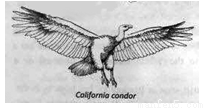题目内容
I was living a life in my screen and hardly noticed what was around me. So when my friends invited me to go camping for a long weekend without the cell service, I thought this was exactly what I needed. Here’s how keeping away from my phone for 48 hours changed me.
I realized my bedtime routine was usually centered on one thing: my phone. Right before I went to sleep, I browsed through news websites and checked my emails. When I woke up in the middle of the night, I did the same thing. The problem with this was I felt anxious every night. I felt free without my phone at that weekend camp. I felt asleep listening to the sound of crickets.
When I had my phone, I was always checking the time and thinking of future plans. My thought was: “Who’s going to text me now? What will I do next?” Without my phone, I truly savored what I was doing in the moment, sitting by the river, riding a bike, or singing the old songs. There was no need to rush through any of it. I listened to what my body wanted instead of what my phone was telling me to do.
You know that moment when you’re hanging out with a group of people and no one has anything to say? The typical response: Everyone immediately pulls out their phones. So what did we do without a phone to avoid embarrassing silences? We actually talked to each other. Instead of burying our faces in our screens, we looked one another in the eye, had a moment of pure human connection and then continued talking. And you know what? People actually listened.
So, now what? Now I’m back to the real world.
1.When the author’s friends invited him to go camping, he .
A. didn’t really want to go
B. wanted to take his cellphone
C. didn’t think life would be any different
D. considered it a good chance to escape cellphone
2.What change did the author experience according to Paragraph 2?
A. He broke his bedtime routine.
B. He no longer cared about news.
C. He fell in love with sounds of nature.
D. He began to pay attention to his future plans.
3.The underlined word “savored” in Paragraph 3 can be replaced by “ ”.
A. ignored B. recorded
C. enjoyed D. remembered
4.At that weekend camp, the campers .
A. often felt very lonely
B. found some other fun activities
C. got into good conversation with each other
D. often needed to deal with embarrassing silences
 一卷搞定系列答案
一卷搞定系列答案 名校作业本系列答案
名校作业本系列答案 轻巧夺冠周测月考直通名校系列答案
轻巧夺冠周测月考直通名校系列答案书面表达:暑假即将来临。你班同学讨论了假期计划,提出了不同看法。请根据提示写一篇有关讨论的英语短文,并谈谈你的看法。
优点 | 缺点 | |
呆在家中 | 花费少,舒适方便 | 不能亲身了解外界 |
外出旅游 | 增长见识,开阔眼界 | 花费多,旅途不便 |
注意:1. 短文必须写在答题卡的指定区域,词数80~120(不含已写好部分)。
2. 短文必须包括表中所列要点,可根据内容分段表达。
3. 可适当增加细节,以使行文连贯。
4. 参考词汇:眼界——horizon(或view)
The summer holiday is coming. Our class have had a discussion about what to do during the holiday.


